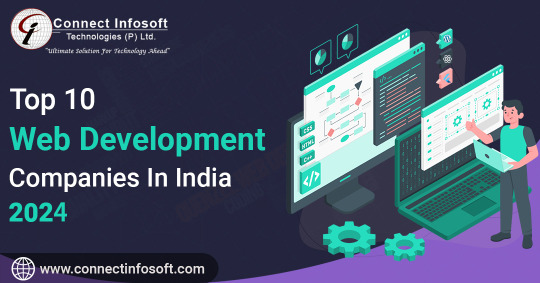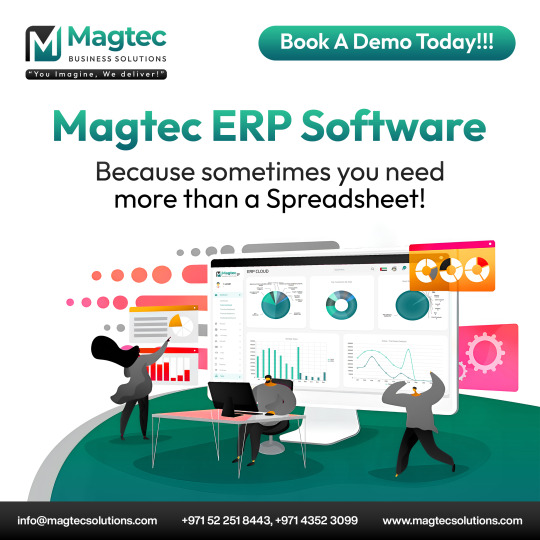#Finance Saas Products
Explore tagged Tumblr posts
Link
#Finance Saas Products#Financial Saas Application Review#Important Features for Protecting Your Wealth#Investment Management Tools#Investment Management Web App#Secure Document-Sharing Platform#Secures Your Financial Future#User-Friendly Interface#Web-Based Financial Management Platform#Web-Based platform for Maintaining a Repository
1 note
·
View note
Text

Streamline your business operations with Magtec ERP! 🚀 We offer exceptional technical support, competitive pricing, thorough oversight features, a reliable process framework, and stay up-to-date with the latest software developments. 💻 Book a demo today and see how Magtec ERP can transform your business! ✨
#magtec#erp#automation#business#efficiency#software#technology#innovation#digitaltransformation#enterprise#solutions#productivity#success#growth#management#finance#humanresources#supplychain#logistics#cloud#saas#onpremises#hybrid#integration#scalability#customization#support#trustedpartner#magtecerp#magtecsolutions
2 notes
·
View notes
Text
HRMantra's Legal Battle Against Darwinbox Titans

Introduction:
In a blockbuster legal showdown, HRMantra Software Pvt Ltd has initiated a no-holds-barred legal crusade against its ex-employee Nasreen Shaikh and the trio behind Darwinbox Digital Solutions Pvt Ltd - Chaitanya Peddi, Jayant Paleti, and Rohit Chennamaneni. The FIR, wielding the legal arsenal of Sections 406, 34 of the Indian Penal Code, and Sections 43 (a), (b), and (g) along with 66, 66-B, 66-C, 72, 72-A of the Information Technology Act 2000, exposes a gripping tale of corporate espionage and alleged subversion.
Backdrop:
With a legacy spanning over two decades, HRMantra has been a trailblazer in the HR and payroll software arena, having developed and marketed its flagship product, HRMantra, since the year 2000. However, the tranquility was disrupted when Darwinbox allegedly embarked on a calculated mission, strategically poaching HRMantra's experienced professionals and violating contractual agreements that prohibited them from joining competitors in the HR and payroll software domain for a mandated two-year period.
Legal Onslaught:
The FIR meticulously chronicles how Darwinbox allegedly circumvented contractual obligations set by HRMantra, willfully disregarding appointment letters, employee undertakings, bond agreements, and full and final settlement terms. These contractual safeguards explicitly prohibit ex-employees from disclosing trade secrets, client lists, employee details, and other sensitive information or tarnishing HRMantra's reputation in any media.
Business Fallout:
The aftermath of Darwinbox's alleged actions has wreaked havoc on HRMantra. The FIR claims that Nasreen Shaikh and eight other employees transitioned to Darwinbox, strategically targeting HRMantra's clients. This has resulted in a substantial loss of clients, a financial setback amounting to crores of Rupees, and a discernible blow to HRMantra's once-untarnished brand standing.
Founder's Persistence:
In the face of adversity, HRMantra's founder, Mr. Pankaj Bhargav, displayed unwavering determination. After initially approaching the police in August 2021, he persisted through the legal labyrinth, ultimately securing a court order on January 2, 2024. This directive compelled the Charkop police station to formally register the FIR on February 20, 2024.
Conclusion:
As the legal drama unfolds, the business community awaits the outcome, recognizing the potential impact on corporate ethics, employee loyalty, and fair competition. HRMantra's bold legal offensive against the founders of Darwinbox underscores the imperative of protecting proprietary assets and upholding integrity in the fiercely competitive corporate landscape. The resolution of this clash could well shape standards for ethical conduct and professional loyalty in the dynamic tech industry.
#Business#Entrepreneurship#Startups#SmallBusiness#Marketing#Leadership#Management#Finance#Strategy#Innovation#Success#Networking#DigitalMarketing#Economy#Productivity#human resources#saas#software
0 notes
Text
HRMantra's Legal Salvo Against Darwinbox Titans

Introduction:
In a riveting legal saga, HRMantra Software Pvt Ltd has taken a resolute stand against its former employee Nasreen Shaikh and the formidable trio at Darwinbox Digital Solutions Pvt Ltd - Chaitanya Peddi, Jayant Paleti, and Rohit Chennamaneni. The FIR, leveraging the legal might of Sections 406, 34 of the Indian Penal Code, and Sections 43 (a), (b), and (g) with 66, 66-B, 66-C, 72, 72-A of the Information Technology Act 2000, unravels a tale of corporate intrigue and alleged subterfuge.
Backdrop:
With a legacy spanning over two decades, HRMantra has been an industry leader in developing and marketing HR and payroll software since the year 2000. However, the tranquility was disrupted when Darwinbox allegedly initiated a calculated campaign, strategically recruiting HRMantra's seasoned professionals and violating contractual agreements prohibiting them from joining competitors in the HR and payroll software domain for a mandated two-year period.
Legal Onslaught:
The FIR meticulously outlines how Darwinbox allegedly flouted contractual obligations set by HRMantra, deliberately ignoring appointment letters, employee undertakings, bond agreements, and full and final settlement terms. These contractual safeguards explicitly prohibit ex-employees from disclosing trade secrets, client lists, employee details, and other confidential information or tarnishing HRMantra's reputation in any media.
Business Fallout:
The aftermath of Darwinbox's alleged actions has sent shockwaves through HRMantra. The FIR alleges that Nasreen Shaikh and eight other employees made a strategic move to Darwinbox, targeting HRMantra's clients. This has resulted in a substantial loss of clients, a financial hit running into crores of Rupees, and a perceptible dent in HRMantra's once-untarnished brand standing.
Founder's Resolve:
In the face of adversity, HRMantra's founder, Mr. Pankaj Bhargav, exhibited unwavering determination. After initially approaching the police in August 2021, he navigated the legal maze to secure a court order on January 2, 2024. This directive prompted the Charkop police station to officially register the FIR on February 20, 2024.
Conclusion:
As the legal drama unfolds, the business community watches with bated breath, acknowledging the potential impact on corporate ethics, employee loyalty, and fair competition. HRMantra's unwavering legal stand against the founders of Darwinbox underscores the importance of safeguarding proprietary assets and upholding integrity in the cutthroat corporate landscape. The resolution of this conflict could significantly shape standards for ethical conduct and professional loyalty in the dynamic tech industry.
Download FIR now- click here
#Business#Entrepreneurship#Startups#SmallBusiness#Marketing#Leadership#Management#Finance#Strategy#Innovation#Success#Networking#DigitalMarketing#Economy#Productivity#human resources#saas#software
0 notes
Text
Obi-Wan: *sitting at the table with a bunch of clones, noticing a couple shinies looking awkward* Oh, I guess I could just-
Cody: They’re not upset about you, they just think we’re not allowed to talk about hobbies while you’re around.
Obi-Wan: *perks up* oh? What kind of hobbies?
Shiny 1: I like to knit, but that’s not actually what we were talking about.
Obi-Wan: Oh that’s amazing, I picked up knitting from Master Tra Saa as a Padawan, she forced Tholme and me and Quin into the ugliest sweaters as kids. My own master crocheted blankets for the crechlings. I’ll have to introduce you to the other clones I know that knit.
Shiny 1: *perks up all cute and sweet* Oh, that would be nice!
Obi-Wan: :) and you?
Shiny 2: I wouldn’t really call it a /hobby/-
Waxer: Nah, it totally counts.
Boil: Yeah. Cody used to make a hobby out of seeing how much he could stress out the alphas before they put him in the corner.
Cody: We needed to know how much we could get away with! What went too far and we’d get in major trouble for!
Boil: Exactly. Our commander is a limit pushing brat. Yours totally counts as a hobby.
Shiny 2: I mean… *sees Obi-Wan’s encouraging look* I run a holoweb blog where I track the finances and voting habits of all senators who vote against giving clones right or safety measures.
Boil: See! His blog is famous and he’s even getting death threats over it! Which is funny cause he always just publishes them and three senators have been questioned publicly about it.
Waxer: If I had the tech skills for this, trust me, I’d make it my hobby too.
Shiny 2: *nervously looking at Obi-Wan*
Obi-Wan: …can I have the link to that blog? It sounds more than just a hobby, that sound useful…
Shiny 2: *perks up* Oh? Okay.
Obi-Wan: Besides, it’s more productive than I ever got up to as a kid. I went through a phase where I wore a Sparvard (Space Harvard) sweater everywhere to trick men into talking to me. I found them amusing. I always told them I thought it was a gay dating app. They didn’t like me much.
Cody: Oh, I love the antagonism of it!
Obi-Wan: I thought you might.
#star wars#obi wan kenobi#incorrect star wars quotes#clone wars#incorrect clone wars quotes#commander cody#the clones#Obi and Cody are both Professional Baby Brats#they terrorize Mace and Alpha the most
487 notes
·
View notes
Text
Ideal Customer Persona: Marketing Director Mark
About Them
Name: Mark Thompson
Role: Marketing Director
Industry: SaaS (Software as a Service)
Company Size: Mid-sized (100-500 employees)
Demographics:
Age: 35-45 years old
Education: Bachelor's in Marketing or Business, often with an MBA
Location: Urban areas with a tech industry presence (e.g., San Francisco, New York, Austin)
Experience: 10+ years in marketing, 3-5 years in a leadership role
Professional Background:
Strong understanding of digital marketing, analytics, and customer acquisition strategies
Experienced in leading cross-functional teams and managing marketing budgets.
Use Case
How they use our product:
To manage and optimize digital marketing campaigns across multiple channels (e.g., social media, email, SEO)
To gain insights into customer behavior and campaign performance through advanced analytics and reporting tools
To streamline and automate repetitive marketing tasks
What they’re trying to achieve:
Increase lead generation and conversion rates
Enhance brand visibility and engagement
Improve ROI on marketing spend
Gain a competitive edge through data-driven decision-making
Previous Solution & Pain Points
Previous Solution:
A combination of multiple marketing tools (e.g., email marketing platforms, social media schedulers, web analytics tools)
Manual processes for campaign management and performance tracking
Pain Points:
Fragmented data across different tools leading to inefficiencies and inaccuracies
Time-consuming manual processes
Difficulty in measuring the true impact of marketing efforts on revenue
Challenges in personalizing marketing campaigns at scale
Benefits
Main Benefits from Using Our Product:
Integrated Platform: Unified solution that brings all marketing tools and data into one platform
Automation: Streamlined workflows for campaign management, reducing manual effort
Advanced Analytics: Comprehensive reporting and analytics that provide actionable insights
Scalability: Ability to personalize campaigns at scale, driving better engagement
Improved ROI: More efficient use of marketing budgets through data-driven optimization
Buying Trigger
What Causes Them to Seek Out Our Product:
Need to consolidate marketing tools for better efficiency
Growth in company size leading to more complex marketing needs
Desire to improve marketing performance and accountability
Feedback from the executive team demanding better metrics and ROI
Frustration with current tools' limitations and lack of integration
Buying Process
Typical Process People Go Through to Buy Our Product:
Research: Initial online research to identify potential solutions, reading reviews and case studies
Evaluation: Shortlisting a few platforms, attending demos, and comparing features and pricing
Consultation: Internal discussions with the marketing team and other stakeholders (e.g., IT, finance)
Trial: Requesting a free trial or pilot program to test the product
Decision: Final decision made by the Marketing Director, often in consultation with the executive team
Approval: Securing budget approval and negotiating contracts
Choice Factors
Things They’re Looking for in a Product Like Ours:
Ease of Use: Intuitive interface and easy onboarding process
Integration: Seamless integration with existing tools and systems
Scalability: Ability to grow with the company and handle increasing volumes of data and users
Support: Reliable customer support and resources for troubleshooting and optimization
Value: Competitive pricing and clear ROI
Innovation: Regular updates and new features that keep the platform ahead of industry trends
5 notes
·
View notes
Text
Top Ten Web Development Companies in India
Although many organisations strive to minimise the benefits of web development to the global market, statistics indicate the truth. According to statistics, everybody with an internet connection can browse around 1.88 billion webpages.

Given that the majority of websites increase firm sales and ROI, web development can create exceptional outcomes for any business. Web development can benefit both a start-up and a huge organisation. Custom Web Development Companies in India that are skilled in web development are best equipped to handle business needs because they always have enough talent to meet all the demands.
The Best Web Development Companies in India keep their resources up to date with the most recent trends and technologies in the digital world, in addition to their skill sets. Despite the fact that every other web development firm claims to be the finest, it's straightforward to identify the top web developers in India based on their service offerings and work portfolios.
We've produced a list of the top 10 web development companies in India so you can pick the finest one for your next project! So, let's get started.
1. Connect Infosoft Technologies Pvt. Ltd.
Connect Infosoft Technologies Pvt. Ltd. is a well-known web development service company that provides a comprehensive range of web development services. Our web creation services are targeted to your company's specific demands, allowing you to create a website that fits those objectives. We offer website design, development and Digital marketing organization situated in New Delhi. We were established in 1999 and have been serving our customers everywhere throughout the world. Connect Infosoft's Head Office is based in New Delhi, India and has Branch Office in Orissa. It also has a portrayal in the United States.
Our skilled web developers are well-versed in the latest web technologies and can provide you with the best web development solutions that match your budget and schedule restrictions. We also have a team of SEO and digital marketing professionals who can assist you in improving your search .
Major Service Offerings:
Web Application Development
ETL Services -SaaS & MVP Development
Mobile App Development
Data Science & Analytics
Artificial Intelligence
Digital Marketing
Search Engine Optimization
Pay-Per-Click advertising campaigns
Blockchain
DevOps
Amazon Web Services
Product Engineering
UI/UX
Client Success Stories:
Our success is intricately woven with the success stories of our clients. We take pride in delivering successful projects that align with client requirements and contribute to their growth.
We are always ready to start new projects and establish long-term work relationships. We work in any time zone for full-time and part-time-based projects.
Hire Developer for $10 per hour approx.
Book Appointments or Start To Chat:
Email: [email protected] M: +1 323-522-5635
Web: https://www.connectinfosoft.com/lets-work-together/
2. Infosys
Infosys is a well-known global leader in IT services and consulting based in India. Founded in 1981, Infosys has grown to become one of the largest IT companies in India and has a strong presence worldwide. The company offers a wide range of services, including web development, software development, consulting and business process outsourcing.
In the field of web development, Infosys provides comprehensive solutions to its clients. They have expertise in building custom web applications, e-commerce platforms, content management systems and mobile-responsive websites. Their web development team is skilled in various programming languages, frameworks and technologies to create robust and scalable web solutions.
Infosys has a track record of working with clients from diverse industries, including banking and finance, healthcare, retail, manufacturing and more. They leverage their deep industry knowledge and technical expertise to deliver innovative web development solutions tailored to meet their clients' specific requirements.
Additionally, Infosys focuses on utilizing emerging technologies like artificial intelligence, machine learning, blockchain and cloud computing to enhance the web development process and deliver cutting-edge solutions.
3. TCS (Tata Consultancy Services)
TCS (Tata Consultancy Services) is one of the largest and most renowned IT services companies in India and a part of the Tata Group conglomerate. Established in 1968, TCS has a global presence and provides a wide range of services, including web development, software development, consulting and IT outsourcing.
TCS offers comprehensive web development solutions to its clients across various industries. Their web development services encompass front-end and back-end development, web application development, e-commerce platforms, content management systems and mobile-responsive websites. They have expertise in various programming languages, frameworks and technologies to build robust and scalable web solutions.
TCS has a customer-centric approach and works closely with its clients to understand their business requirements and goals. They leverage their deep industry knowledge and technological expertise to provide innovative and tailored web development solutions that align with their clients' specific needs.
4. Wipro
Wipro is a prominent global IT consulting and services company based in India. Established in 1945, Wipro has evolved into a multinational organization with a presence in over 60 countries. The company offers a wide range of services, including web development, software development, consulting and digital transformation.
In the realm of web development, Wipro provides comprehensive solutions to its clients. They have a team of skilled professionals proficient in various programming languages, frameworks and technologies. Their web development services cover front-end and back-end development, web application development, e-commerce platforms, content management systems and mobile-responsive websites.
Wipro emphasizes delivering customer-centric web development solutions. They collaborate closely with their clients to understand their specific requirements and business objectives. This enables them to create tailored solutions that align with the clients' goals and provide a competitive
5. HCL Technologies
HCL Technologies is a leading global IT services company headquartered in India. Established in 1976, HCL Technologies has grown to become one of the prominent players in the IT industry. The company offers a wide range of services, including web development, software development, digital transformation, consulting and infrastructure management.
HCL Technologies provides comprehensive web development solutions to its clients worldwide. They have a dedicated team of skilled professionals proficient in various programming languages, frameworks and technologies. Their web development services cover front-end and back-end development, web application development, e-commerce platforms, content management systems and mobile-responsive websites.
HCL Technologies has a broad industry presence and serves clients across various sectors such as banking and financial services, healthcare, retail, manufacturing and more. They leverage their deep industry expertise to deliver web solutions that are not only technologically robust but also address the unique challenges and requirements of each industry.
6. Mindtree
Mindtree is a global technology consulting and services company based in India. Founded in 1999, Mindtree has grown to become a well-known player in the IT industry. The company offers a wide range of services, including web development, software development, digital transformation, cloud services and data analytics.
Mindtree provides comprehensive web development solutions to its clients. They have a team of skilled professionals with expertise in various programming languages, frameworks and technologies. Their web development services encompass front-end and back-end development, web application development, e-commerce platforms, content management systems and mobile-responsive websites.
One of the key strengths of Mindtree is its focus on delivering customer-centric solutions. They work closely with their clients to understand their specific business requirements, goals and target audience. This enables them to create tailored web development solutions that meet the clients' unique needs and deliver a seamless user experience.
Mindtree serves clients across multiple industries, including banking and financial services, healthcare, retail, manufacturing and more. They leverage their industry knowledge and experience to provide web solutions that align with the specific challenges and regulations of each sector.
7. Tech Mahindra
Tech Mahindra is a multinational IT services and consulting company based in India. Established in 1986, Tech Mahindra is part of the Mahindra Group conglomerate. The company offers a wide range of services, including web development, software development, consulting, digital transformation and IT outsourcing.
Tech Mahindra provides comprehensive web development solutions to its clients across various industries. They have a team of skilled professionals proficient in various programming languages, frameworks and technologies. Their web development services cover front-end and back-end development, web application development, e-commerce platforms, content management systems and mobile-responsive websites.
Tech Mahindra focuses on delivering customer-centric web development solutions. They work closely with their clients to understand their specific requirements, business objectives and target audience. This enables them to create customized web solutions that meet the clients' unique needs, enhance user experience and drive business growth.
The company serves clients across diverse sectors, including telecommunications, banking and financial services, healthcare, retail, manufacturing and more. They leverage their industry expertise and domain knowledge to provide web solutions that are tailored to the specific challenges and requirements of each industry.
Tech Mahindra embraces emerging technologies in their web development services. They leverage artificial intelligence, machine learning, blockchain, cloud computing and other advanced technologies to enhance the functionality, security and scalability of the web solutions they deliver.
8. Mphasis
Mphasis is an IT services company headquartered in India. Established in 2000, Mphasis has a global presence and offers a wide range of services, including web development, software development, digital transformation, consulting and infrastructure services.
Mphasis provides comprehensive web development solutions to its clients worldwide. They have a team of skilled professionals proficient in various programming languages, frameworks and technologies. Their web development services encompass front-end and back-end development, web application development, e-commerce platforms, content management systems and mobile-responsive websites.
Mphasis focuses on delivering customer-centric web development solutions tailored to meet their clients' specific requirements. They work closely with their clients to understand their business objectives, target audience and desired outcomes. This allows them to create customized web solutions that align with their clients' goals and provide a competitive edge.
9. L&T Infotech
L&T Infotech (LTI) is a global IT solutions and services company headquartered in India. LTI is a subsidiary of Larsen & Toubro, one of India's largest conglomerates. The company provides a wide range of services, including web development, software development, consulting, digital transformation and infrastructure management.
L&T Infotech offers comprehensive web development solutions to its clients. They have a team of skilled professionals who are proficient in various programming languages, frameworks and technologies. Their web development services cover front-end and back-end development, web application development, e-commerce platforms, content management systems and mobile-responsive websites.
One of the key strengths of L&T Infotech is its customer-centric approach. They work closely with their clients to understand their specific business requirements, objectives and target audience. This enables them to create tailored web development solutions that align with the clients' unique needs and deliver tangible business value.
10. Cybage
Cybage is a technology consulting and product engineering company headquartered in Pune, India. Established in 1995, Cybage has grown to become a global organization with a presence in multiple countries. The company offers a range of services, including web development, software development, quality assurance, digital solutions and IT consulting.
Cybage provides comprehensive web development solutions to its clients. They have a team of skilled professionals who are proficient in various programming languages, frameworks and technologies. Their web development services encompass front-end and back-end development, web application development, e-commerce platforms, content management systems and mobile-responsive websites.
Cybage focuses on delivering customer-centric web development solutions. They collaborate closely with their clients to understand their specific business requirements, goals and target audience. This enables them to create customized web solutions that meet the clients' unique needs, enhance user experience and drive business growth.
The company serves clients across diverse industries, including healthcare, retail, e-commerce, banking and finance and more. They leverage their industry knowledge and domain expertise to provide web solutions that address the unique challenges and requirements of each industry.
Cybage emphasizes the use of emerging technologies in their web development services. They incorporate artificial intelligence, machine learning, cloud computing, blockchain and other innovative technologies to enhance the functionality, scalability and security of the web solutions they deliver.
#web developer#web development#webdesign#web design#web app development#custom web app development#web application development#web application services#web application security#connect infosoft
3 notes
·
View notes
Photo

Kalium v3.10 - Kalium is the perfect Wordpress theme if you want to quickly create a Website for Business, Portfolio, Agency, Photography, Artist, Travel Agency, Corporate, Fitness (Gym), Restaurant, Hotel, Medical, Dentist, Construction, Wedding, Fashion Store, Bookstore, Lawyer, Product Landing, Education, Automotive (Car Dealership), Architecture, Blog, SaaS, Startup, Resume, Hairdresser, Therapist, Podcast, Industrial, Finance, Marketing, Yoga, SEO, Consulting, Logistics or Personal Website, just about anything can be designed with Kalium.
0 notes
Text
The AI Chatbot Revolution: Enhancing Business Operations and Maximizing Profits
Introduction
Artificial Intelligence (AI) is reshaping industries, with AI chatbot solutions at the forefront of business transformation. From automating customer interactions to streamlining workflows, AI-powered chatbots are revolutionizing business operations, offering entrepreneurs new avenues for growth and profitability.
In this article, we explore how AI chatbots are redefining industries, fueling business success, and how you can harness this technology for financial advantage.
The Expanding Role of AI Chatbots in Business
The rising demand for AI-driven chat solutions has fueled the widespread adoption of chatbots across various industries. Businesses are integrating AI chatbots to enhance customer experiences, optimize operations, and improve response efficiency.
AI Chatbots in E-Commerce: Improving Customer Experience and Sales
Online retailers are utilizing AI chatbots to provide real-time customer support, recommend products, and facilitate seamless transactions, leading to increased sales and improved customer engagement.
AI Chatbots in Customer Support: Streamlining Service and Reducing Costs
AI-powered chatbots allow businesses to handle high volumes of customer inquiries without the need for additional staffing, ensuring efficient support and significant cost savings.
AI Chatbots in Marketing and Lead Generation
AI chatbots help businesses engage potential customers, qualify leads, and nurture prospects with personalized conversations, increasing conversion rates and optimizing marketing campaigns.
AI Chatbots in Healthcare: Enhancing Patient Communication
In the healthcare sector, AI chatbots assist with scheduling appointments, providing symptom assessments, and offering basic health guidance, making medical services more accessible and responsive.
AI Chatbots in Finance: Facilitating Banking and Investment Advisory
Financial institutions leverage AI-powered chat solutions to assist users with transactions, provide budgeting insights, and offer investment recommendations, improving financial accessibility and user experience.
How AI Chatbots Are Fueling Business Success
Creating AI Chatbot SaaS Platforms
Tech entrepreneurs are developing AI chatbot software-as-a-service (SaaS) platforms, enabling businesses to deploy chatbots effortlessly while generating recurring revenue from subscription-based models.
Providing AI Chatbot Development Services
AI specialists are offering AI chatbot development solutions to enterprises seeking custom chatbot functionality, making it a high-demand and profitable industry.
AI Chatbots in Automated Affiliate Marketing
Digital marketers use AI chatbots to promote affiliate products, automate sales conversations, and enhance engagement, leading to increased earnings through AI-powered conversions.
AI Chatbots in E-Commerce Operations
E-commerce businesses integrate AI chatbots for managing customer inquiries, processing orders, and offering personalized product recommendations, resulting in better efficiency and higher profits.
AI Chatbot Marketplaces and Licensing Models
Developers are creating AI chatbot marketplaces where businesses can purchase ready-made chatbot solutions tailored to different industries, unlocking additional revenue streams.
How You Can Leverage AI Chatbot Technology
Learn AI Chatbot Development and Offer Custom Services
By mastering AI chatbot development, you can design specialized chatbot solutions for businesses, offering premium services at high-value rates.
Build an AI Chatbot SaaS Business
Develop a SaaS chatbot platform that enables businesses to build their own AI-powered assistants, ensuring consistent revenue through monthly subscriptions.
Implement AI Chatbots in Your Business
If you own an online business, blog, or service company, integrating AI chatbots can enhance customer interactions, automate support, and boost conversions.
Utilize AI Chatbots for Automated Marketing and Sales
AI chatbots can be used to drive affiliate sales, manage marketing campaigns, and increase customer engagement, leading to greater profitability.
Partner with AI Chatbot Developers
If you lack technical expertise, collaborate with AI chatbot development companies to resell AI-powered solutions and expand your business offerings.
Conclusion
The AI chatbot revolution is transforming industries, providing business owners, developers, and marketers with unparalleled opportunities for scaling operations and increasing profitability. Whether you're an entrepreneur, a developer, or a business owner, leveraging AI chatbot technology can unlock significant financial gains.
As AI continues to advance, now is the perfect time to integrate AI-powered chat assistance into your business strategy and position yourself at the forefront of digital transformation.
Are you ready to take advantage of AI chatbots for business growth? Start today and harness the power of AI automation!
FAQs
What is AI chatbot development?
AI chatbot development involves creating intelligent virtual assistants that automate business conversations, provide customer support, and improve user experiences.
How do AI chatbots generate revenue?
AI chatbots generate revenue through SaaS subscriptions, custom development services, affiliate marketing automation, e-commerce management, and licensing chatbot solutions.
Do I need programming skills to create an AI chatbot?
No-code chatbot platforms allow users to create AI chatbots without coding. However, advanced chatbot customization may require programming knowledge.
Which industries benefit the most from AI-powered chat solutions?
Industries such as e-commerce, healthcare, finance, real estate, and customer support gain significant advantages from AI chatbot implementation.
How can I start a business using AI chatbots?
To launch an AI chatbot business, you can develop a SaaS platform, offer chatbot development services, sell chatbot solutions, or integrate AI chatbots into your existing business.
#ai chatbot#conversational ai#artificial intelligence#smartle ai#ecommerce#ai chatassistance#smartleai
0 notes
Text
AI-Powered Chatbots: How Businesses Are Using Conversational AI to Boost Sales
In today’s fast-paced digital world, businesses need instant communication and personalized customer interactions to stay competitive. AI-powered chatbots are transforming the way brands engage with customers, offering 24/7 support, automating sales processes, and driving conversions like never before.
With advanced natural language processing (NLP) and machine learning, these AI-driven tools are enhancing customer experiences and increasing revenue for businesses across industries. In this article, we’ll explore how conversational AI is revolutionizing sales and why businesses must integrate chatbots into their marketing strategies.
How AI-Powered Chatbots Are Changing Sales & Customer Engagement
1. 24/7 Customer Support Without Human Limitations
One of the biggest advantages of AI-powered chatbots is their ability to provide round-the-clock customer service. Unlike human agents, chatbots don’t need breaks or sleep, ensuring customers receive instant responses at any time of the day.
For businesses, this means: ✔ Reduced response times and improved customer satisfaction ✔ Handling multiple inquiries simultaneously ✔ Lower operational costs by minimizing human support staff
By integrating AI-powered customer support, businesses can increase efficiency and improve overall user experience.
2. Personalized Shopping Experiences That Drive Sales
Modern chatbots don’t just answer queries — they also recommend products, upsell, and guide customers through the buying journey. By analyzing user behavior, past purchases, and preferences, chatbots can suggest tailored solutions, making customers more likely to complete a purchase.
For example, an e-commerce store using an AI chatbot can: ✔ Offer product recommendations based on browsing history ✔ Send personalized discount offers to returning visitors ✔ Assist with checkout, reducing cart abandonment rates
Using chatbot-driven sales automation, businesses can create highly customized customer journeys that lead to higher conversions.
3. Lead Generation and Qualification on Autopilot
Traditionally, lead generation required significant human effort, but AI-powered chatbots streamline the process by automatically engaging website visitors and collecting data. Instead of filling out long forms, customers can interact with chatbots, providing their details in a conversational and engaging way.
AI chatbots help businesses: ✔ Qualify leads based on their responses and intent ✔ Segment leads for personalized follow-ups ✔ Automate appointment scheduling for sales teams
By implementing chatbots for lead generation, businesses can capture high-quality leads without manual intervention.
Industries Benefiting the Most from AI Chatbots
AI-powered chatbots are being widely adopted across multiple industries, including:
✔ E-commerce — Automating product recommendations and customer inquiries ✔ Finance — Providing instant banking assistance and fraud detection ✔ Healthcare — Booking appointments and answering patient FAQs ✔ Real Estate — Engaging potential buyers and automating property searches ✔ SaaS & Tech — Offering AI-driven onboarding and troubleshooting
Businesses that integrate AI-driven chatbots into their operations are experiencing higher customer satisfaction, increased engagement, and greater sales success.
How to Optimize Your Chatbot for Maximum Sales Impact
To maximize the effectiveness of AI chatbots, businesses should follow these best practices:
✔ Make interactions feel natural — Use conversational language and personalized messaging ✔ Integrate with CRM & analytics tools — Track customer interactions for better insights ✔ Offer multilingual support — Cater to a global audience ✔ Continuously train your chatbot — Use AI learning to refine responses and improve accuracy
By leveraging AI-powered chatbots, businesses can create seamless customer experiences that drive sales and foster brand loyalty.
Final Thoughts
The rise of AI-powered chatbots is reshaping how businesses interact with customers, automating sales, boosting engagement, and enhancing user experiences. Whether it’s 24/7 customer support, personalized recommendations, or lead generation, AI chatbots are a must-have tool for businesses in 2025 and beyond.
To stay ahead of the competition, companies must integrate smart chatbot technology into their digital marketing strategies and continuously optimize for better user interactions and sales conversions. 🚀
0 notes
Text
A Guide to the Best Startup Companies in Chennai

Chennai, a bustling metropolitan city known for its rich culture, education, and industrial history, has quickly become a prominent hub for innovation and entrepreneurship. Over the past decade, the city has seen an explosion of startup companies in Chennai across various sectors such as technology, health, e-commerce, and finance. With a rapidly growing ecosystem supported by investors, mentors, and an increasingly talented workforce, Chennai has transformed into one of India’s key players in the startup landscape.
Best Startup Companies in Chennai
1. Zoho Corporation
One of the most notable names among startup companies in Chennai, Zoho is a testament to the power of innovation. Founded in 1996 by Sridhar Vembu, Zoho started as a small IT startup but has since evolved into a global software company offering cloud-based business tools. Today, Zoho provides over 45 SaaS (Software as a Service) applications for businesses of all sizes. With its headquarters in Chennai and offices worldwide, Zoho is a shining example of how a startup can scale and compete on the global stage. The company remains privately owned, which is a rare feat among tech giants.
2. Freshworks
Freshworks, another success story from Chennai’s thriving tech scene, is a leading provider of customer support software. Founded in 2010 by Girish Mathrubootham and Shan Krishnasamy, Freshworks has become a global brand offering tools for customer engagement, including CRM (Customer Relationship Management), marketing automation, and helpdesk services. The company raised its IPO in 2021, making a successful debut on the Nasdaq stock exchange. Freshworks' journey is a clear indication of how a Chennai-based startup can scale internationally and become a household name.
3. Fynd
Fynd, a retail-tech startup, has garnered significant attention for its innovative approach to e-commerce. Founded in 2012, Fynd enables retailers to offer a seamless omni-channel shopping experience. By integrating physical stores with online platforms, Fynd allows customers to browse, shop, and pick up products in real time across a network of retailers. With backing from companies like Google and other prominent investors, Fynd continues to expand its reach across the Indian market and is set to transform how people shop in the digital age.
4. Open
Open is an exciting fintech startup that is making waves in the banking and financial services sector. Founded in 2017 by Anish Achuthan and Raghuraman K, Open offers an innovative business banking platform that helps small and medium-sized enterprises (SMEs) manage their finances effortlessly. The platform combines banking services with powerful tools for accounting, payments, and business analytics, all in one app. Open’s focus on the SME sector has resonated with many businesses, making it one of the standout startup companies in Chennai.
5. Uniphore
Uniphore is another Chennai-based startup that has gained international recognition, particularly in the field of artificial intelligence (AI) and speech analytics. Founded in 2008 by Umesh Sachdev and Ravi Saraogi, Uniphore is focused on transforming customer service through AI-driven voice technologies. Their platform enables businesses to engage with customers using voice assistants, chatbots, and AI-powered analytics. Uniphore’s rapid growth and partnerships with global brands demonstrate Chennai’s capacity to foster groundbreaking tech innovations.
6. Bluestone
Bluestone is a prime example of how a Chennai startup can disrupt traditional industries. Established in 2011, Bluestone is an online jewelry retailer that offers high-quality, customizable jewelry at competitive prices. By using technology to revolutionize the way jewelry is bought and sold, Bluestone has become one of the leading e-commerce players in the industry. Their user-friendly platform, vast collection, and focus on customer satisfaction have earned the brand a loyal customer base, and they continue to expand across India.
7. Fusioo
Fusioo is a SaaS-based startup offering a collaborative work management platform that enables teams to streamline their workflow. With an easy-to-use interface and real-time data tracking, Fusioo allows companies to manage projects, tasks, and communications all in one place. Founded in 2013, Fusioo has positioned itself as an ideal solution for growing businesses looking for efficient project management tools. The company has gained popularity across multiple industries and continues to innovate in the SaaS space.
8. HealthifyMe
HealthifyMe, one of the top health-tech startups in Chennai, focuses on making healthy living accessible to people around the world. Founded in 2012 by Tushar Vashisht and Sachin Shenoy, HealthifyMe provides a platform that combines personalized fitness coaching with AI-driven health tracking. Users can track their diet, exercise, and sleep, while accessing tailored fitness plans created by professional coaches. As health and wellness trends grow globally, HealthifyMe has positioned itself as a leader in the digital health space, attracting millions of users.
9. Blynk
Blynk, an IoT (Internet of Things) startup, is changing the way devices are connected. Established in 2017, Blynk’s platform allows users to build and manage IoT projects through an easy-to-use interface, making it possible for both professionals and hobbyists to develop smart products. Whether it’s for smart homes, wearables, or industrial IoT, Blynk has created a robust ecosystem that powers innovation across a variety of industries.
10. Paytm Payments Bank
While Paytm is widely known as one of India’s leading digital payment companies, its Payments Bank division, headquartered in Chennai, is a growing force in the fintech space. Launched in 2015, Paytm Payments Bank allows users to create digital bank accounts, make payments, and transfer money seamlessly. As India continues to move towards a cashless economy, Paytm Payments Bank plays a significant role in facilitating digital transactions and financial inclusion.
Conclusion
The startup scene in Chennai is thriving, and the companies mentioned above are just a glimpse into the city's incredible entrepreneurial potential. With a vibrant tech ecosystem, strong investor networks, and a growing pool of skilled professionals, Chennai is becoming an increasingly important player in the global startup landscape.
0 notes
Text
How to Start a Baking Business: A Beginner’s Guide to Cakes, Pastries, and More | Bake Boost Academy
Are you dreaming of starting your own baking business but don’t know where to begin? You’re in the right place! At Bake Boost Academy, we’re here to guide you step-by-step on your journey to becoming a successful baker and entrepreneur in the cake, pastry, and baking industry. Whether you’re a home baker looking to turn your passion into profit or a complete beginner, this is your starting point!
Step 1: Find Your Baking Niche 🎂
The baking industry is vast, and finding your specialty is key to standing out. Ask yourself:
What do I love baking the most? (e.g., cakes, cupcakes, pastries, bread, cookies, etc.)
Who is my target audience? (e.g., weddings, birthdays, health-conscious customers, gluten-free diets, etc.)
What makes my baking unique? (e.g., signature flavors, custom designs, organic ingredients, etc.)
Pro Tip: Start small and focus on one or two products to perfect before expanding your menu.
Step 2: Learn the Basics of Baking Business 📊
Running a baking business isn’t just about baking—it’s also about managing finances, marketing, and operations. Here’s what you need to know:
Licenses & Permits: Check your local regulations for food business licenses, health permits, and kitchen requirements.
Costing & Pricing: Calculate your ingredient costs, overheads, and labor to set profitable prices.
Suppliers: Find reliable suppliers for quality ingredients and packaging.
Pro Tip: Use tools like Bake Boost SaaS to manage orders, inventory, and customer relationships effortlessly.
Step 3: Master Your Craft 🧁
Practice makes perfect! Invest time in honing your skills:
Take online baking courses or watch tutorials.
Experiment with new recipes and techniques.
Learn about food safety and hygiene to ensure your products are safe for customers.
Pro Tip: Start by offering free samples to friends and family for feedback.
Step 4: Build Your Brand 🎨
Your brand is what sets you apart. Think about:
A catchy business name and logo.
Your brand’s story and values (e.g., “homemade with love,” “eco-friendly packaging”).
A consistent visual identity (colors, fonts, packaging design).
Pro Tip: Use social media platforms like Instagram and Facebook to showcase your creations and attract customers.
Step 5: Start Small & Scale Up 🚀
You don’t need a fancy bakery to start. Many successful bakers began from home kitchens! Start by:
Taking pre-orders for events or holidays.
Selling at local markets or pop-up shops.
Offering delivery or pickup options.
Pro Tip: Use Bake Boost’s order management system to streamline your operations and focus on baking.
Step 6: Market Your Business 📣
Get the word out about your baking business:
Post mouth-watering photos of your creations on social media.
Collaborate with local influencers or businesses.
Offer promotions or discounts for first-time customers.
Pro Tip: Engage with your audience by sharing behind-the-scenes content and baking tips.
Step 7: Keep Learning & Growing 🌱
The baking industry is always evolving. Stay ahead by:
Attending workshops or baking expos.
Keeping up with trends (e.g., vegan baking, drip cakes, etc.).
Listening to customer feedback and improving your offerings.
Pro Tip: Join the Bake Boost community to connect with other bakers and share insights.
Ready to Start Your Baking Journey? 🎂
With passion, practice, and the right tools, you can turn your love for baking into a thriving business. At Bake Boost Academy, we’re here to support you every step of the way. Stay tuned for more tips, tutorials, and resources to help you succeed!
💬 Comment below: What’s the first product you want to sell in your baking business? Let us know!
Bake Boost Academy – Empowering bakers to rise and shine! 🌟
1 note
·
View note
Text

Tired of spreadsheets? Upgrade to Magtec ERP Software for streamlined business operations and data-driven decisions. Book a demo today and see how we can transform your business!
#magtec#erp#automation#business#efficiency#software#technology#innovation#digitaltransformation#enterprise#solutions#productivity#success#growth#management#finance#humanresources#supplychain#logistics#cloud#saas#onpremises#hybrid#integration#scalability#customization#support#trustedpartner#magtecerp#magtecsolutions
3 notes
·
View notes
Text
Game of Codes: HRMantra's Legal Crusade Against Darwinbox's Alleged Corporate Raid

Introduction:
In a high-stakes clash within the tech realm, HRMantra Software Pvt Ltd has thrown down the legal gauntlet against its ex-employee, Nasreen Shaikh, and the formidable trio behind Darwinbox Digital Solutions Pvt Ltd – Chaitanya Peddi, Jayant Paleti, and Rohit Chennamaneni. The FIR, wielding Sections 406, 34 of the Indian Penal Code, and Sections 43 (a), (b), and (g) with 66, 66-B, 66-C, 72, 72-A of the Information Technology Act 2000, unveils a gripping saga of corporate intrigue and alleged betrayal.
Backdrop:
For over two decades, HRMantra has been a pioneer in developing and marketing HR and payroll software, investing substantial resources and building a vast clientele across the nation. However, the peace was shattered when Darwinbox allegedly began aggressively recruiting HRMantra's experienced professionals in defiance of contractual clauses barring them from joining competitors in the HR and payroll software domain for two years.
Legal Thunderstorm:
The FIR details how Darwinbox purportedly ignored the contractual bindings set by HRMantra, breaching appointment letters, employee undertakings, bond agreements, and full and final settlement terms. The legal stipulations explicitly prohibit ex-employees from divulging trade secrets, client lists, employee details, and other confidential information or tarnishing HRMantra's image in any media.
Business Carnage:
The aftermath of Darwinbox's alleged actions has been devastating for HRMantra. The FIR alleges that not only Nasreen Shaikh but eight other employees joined Darwinbox, strategically targeting HRMantra's clients. This has resulted in a substantial loss of clients, a significant hit to revenue amounting to crores of Rupees, and a dent in HRMantra's once-impeccable brand reputation.
Founder's Agony:
The toll on HRMantra's founder, Mr. Pankaj Bhargav, has been more than financial. Seeking justice, he initially approached the police in August 2021, only to be redirected to the court for resolution. After an arduous legal battle, the court finally issued an order on January 2, 2024, compelling the Charkop police station to register the FIR on February 20, 2024.
Conclusion:
As the legal drama unfolds, the technology and business communities are on the edge of their seats, anticipating the potential ripple effects on corporate ethics and employee transitions. HRMantra's decisive legal stance against Darwinbox's founders underscores the lengths companies will go to protect their assets and uphold their integrity in the cutthroat world of corporate competition. The outcome of this clash could reshape the landscape, setting benchmarks for ethical business conduct and employee loyalty in the tech industry.
Download FIR now- click here
#Business#Entrepreneurship#Startups#SmallBusiness#Marketing#Leadership#Management#Finance#Strategy#Innovation#Success#Networking#DigitalMarketing#Economy#Productivity#human resources#saas#software
0 notes
Text
7 BEST CERTIFICATIONS TO GET FOR IT JOBS

As the world moves toward a new phase of the digital revolution, the tech industry is trying to match the pace with new products and services. With technologies like artificial intelligence, cybersecurity, etc., businesses are trying to capture the market and influence the ongoing industry trend as fast as possible. Though this transformation is claiming jobs in several sectors, it is also creating new employment opportunities that need new and advanced skill sets. However, this post explores several certifications that can equip you for these job roles. So delve into this blog to understand the best certifications to get for IT jobs in 2025.
Data Science / Analytics
When it comes to domains like data architect, data analyst, market analyst, statistical analyst, etc., data science is the course that you need to pursue. Since businesses are heavily dependent on data, they require expert data engineers who can correctly extract, store, and predict data. However, pursuing data science certification will make you eligible for several data-related jobs and help you crack top positions in MNCs.
Data science is basically the comprehensive study of dealing with large amounts of data in a computer database. Covering areas like data structure, data visualization, statistics, algorithms, probability, and programming, data science will ensure jobs in the IT industry with an estimated salary of up to $112,000 per year.
Programming With Python
One of the best certifications to get for IT jobs in today’s job market is an advanced Python course. Python is the most in-demand programming language in the industry, followed by JavaScript, Java, and C++. Starting from creating complex SaaS applications to developing dynamic software, businesses use Python. Unlike other programming languages, Python is much simpler, cleaner, easy to learn, and has simpler syntax, which makes it the go-to choice for the tech industry.
Pursuing a professional Python course can open opportunities like DevOps engineering, software development, automation engineering, full-stack development, etc. Simultaneously, you will receive a salary hike of approximately $145,000 per year.
Core Java Certification
Java is one of the most widely used programming languages, making a Core Java certification a valuable credential for aspiring developers. This certification covers Object-Oriented Programming (OOP), data structures, exception handling, multithreading, JDBC, and Java frameworks like Spring and Hibernate. Java is essential for backend development, enterprise applications, and Android development, making it a must-have skill in the IT industry.
Earning this certification can lead to high-paying job roles, as there is a global demand for Java developers. Java developers work in software development, cloud computing, and financial technology sectors. In the USA, the average salary for a Java Developer ranges between $85,000 and $120,000 per year, depending on experience and location.
Android App Development Certification
An Android app development certification is ideal for those looking to build mobile applications for the Google Play Store. This certification covers Java, Kotlin, UI/UX design, REST APIs, database integration, and Android Studio development. Android is the most widely used mobile OS, and businesses across industries rely on mobile apps to engage customers.
The Android development course is best certifications to get for IT jobs can help you start your career in startups, established IT firms, or as a freelancer. With mobile app demand increasing, opportunities in e-commerce, gaming, healthcare, and finance continue to grow. In the USA, an Android Developer earns an average salary between $90,000 and $135,000 annually, with higher pay for experienced professionals.
MERN Stack Certification
A MERN stack certification is essential for those aiming to master full-stack web development. This certification focuses on MongoDB (database), Express.js (backend framework), React.js (frontend framework), and Node.js (runtime environment), enabling professionals to build highly responsive web applications. The MERN stack is used to create dynamic websites and SaaS platforms, making it a valuable skill in modern web development.
With businesses shifting online, MERN developers are highly sought after by tech startups and established firms. Certified professionals can work in e-commerce, fintech, and enterprise software development. In the USA, the average salary for a MERN Stack Developer ranges from $95,000 to $140,000 annually, making it a lucrative career choice.
Software Testing / Quality Assurance Certification
A quality assurance course is the best certifications to get for IT jobs, crucial for professionals who ensure software reliability, performance, and security. This certification covers manual and automated testing, Selenium, test case design, API testing, and performance analysis. As companies prioritize smooth user experiences, QA professionals play a key role in software development.
With the demand for high-quality applications, certified QA engineers are essential in software development, gaming, healthcare, and fintech. Companies like Google, Amazon, and Microsoft actively hire skilled testers. In the USA, a software QA engineer earns an average annual salary between $75,000 and $110,000, with automation testers earning even higher.
Conclusion
Choosing the best certifications to get for IT jobs can significantly boost your career prospects in today’s tech-driven world. Certifications in Core Java, Machine Learning, Android Development, MERN Stack, and Software Testing equip professionals with industry-relevant skills, making them highly employable. These certifications, in response to the growing demand for IT expertise, provide access to high-paying jobs, career stability, and global opportunities in leading tech firms.
If you're ready to advance your IT career, Ultraverse Technologies offers expert-led courses designed for real-world industry demands. Enroll today to gain hands-on experience, master in-demand skills, and secure a high-paying job in IT. Get in touch with us today through our website (ultraversetechnologies.com) or you can simply call or mail us to these following calling number and mail adress - +1 470-451-0575, [email protected].
0 notes
Text
What is Blockchain-as-a-Service (BaaS)?
Companies with minimal tech muscle and finances also deserve to tap into the potential of blockchain technology. But how can they integrate blockchain into their solutions and offerings without building a dedicated infrastructure that would cost an arm and a leg?
SaaS models have enabled businesses to realize breakthrough innovation at a much lower cost. From AI to FinTech, SaaS has made it much easier for business owners to add unique, cutting-edge capabilities to their products.
Introducing Blockchain-as-a-Service (BaaS), a revolutionary SaaS model that helps businesses drive blockchain innovation on a budget.

0 notes